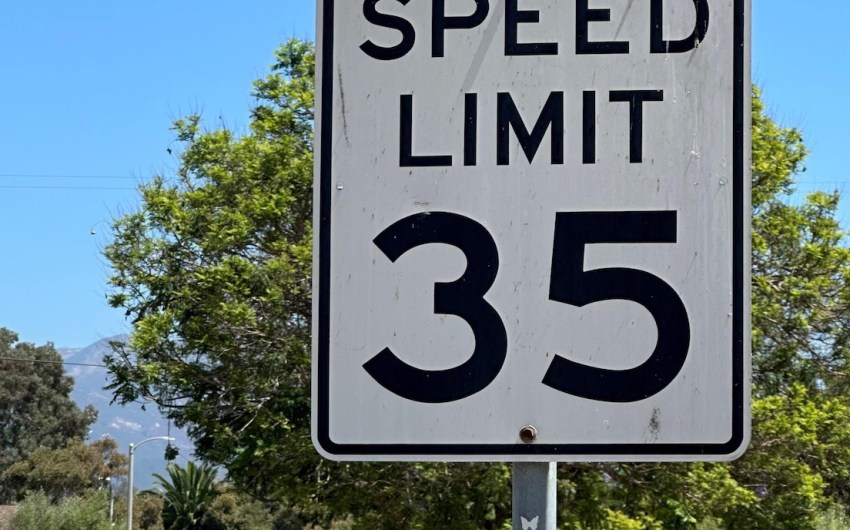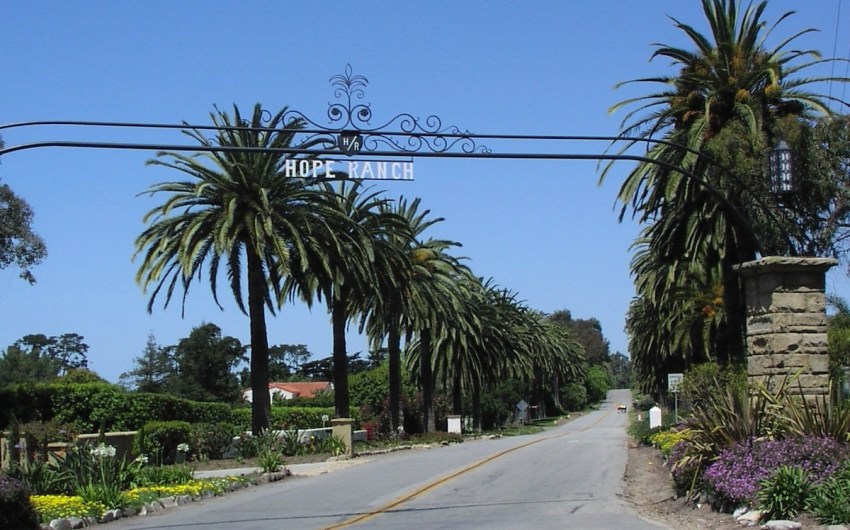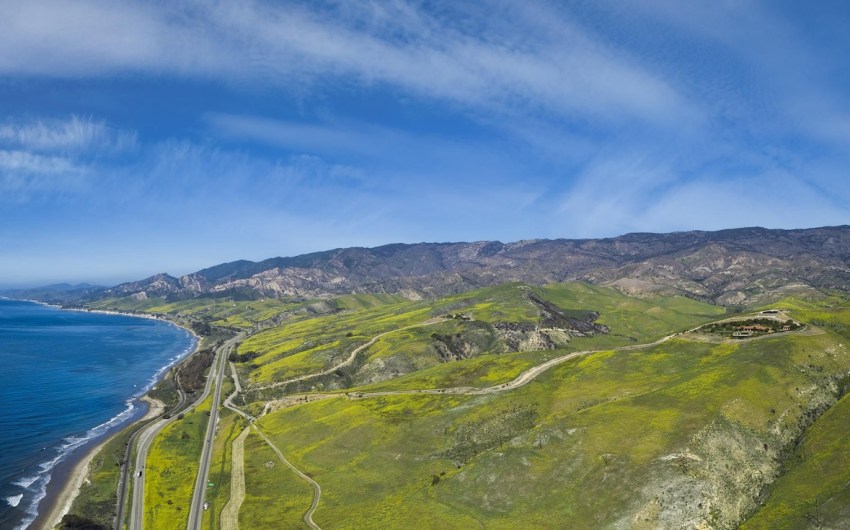Ojai Gets Serious, Musically Speaking
World-famous Ojai Music Festival Returns, with Pianist Mitsuko Uchida as Music Director of a Varied New-Meets-Old Program

Cultural continuity meets constant change and evolution in the ongoing saga of the Ojai Music Festival. Now in its 78th year, the OMF — running from June 6 to 9 —has been one of the most internationally acclaimed music events in the area, landing annually in the picturesque hamlet of Ojai. And yet part of the festival’s unique identity is its ever-changing programming agenda, year by year, created by a shifting array of music directors and their particular worlds.
In a somewhat populist move, the great and multifaceted Rhiannon Giddens took the reins and shifted the musical radar last year. This year, things return to a more typical contemporary classical direction with the arrival of luminous pianist Mitsuko Uchida in charge as music director. Other musicians on the roster include the Mahler Chamber Orchestra, the Brentano String Quartet, soprano Lucy Fitz Gibbon and — attention, accordion fans — accordionist Ljubinka Kulisic playing a John Cage program bright and early on Sunday morning.
The long weekend’s program, running from 8 a.m. through to the evening, includes such modern legends as the late Finnish composer Kaija Saariaho and serialist godfather Arnold Schoenberg, counterbalanced by earlier music by Mozart, Haydn, and many others on both sides of the era-idiom spectrum.
This year’s model promises to be a rich and fruitful edition of this venerable and always challenging festival.
To get an overview of the festival’s story now and over the longer run, we checked in for an interview with music director Ara Guzelimian. He was involved in the festival many years ago, before being pulled to the East Coast to serve as Dean of the Juilliard School but has returned as OMF artistic director since 2021. He’s been there and is doing that.

Just to get a sense of your own involvement in the festival, you were engaged in different roles in the years before your Juilliard period. And now have been artistic director for several years. Having been so engaged in the care and feeding of OMF, how have you seen the festival evolve over your time there?
I think the Ojai Festival, like the world of music itself, has evolved to reflect the world around us. The classical music world has broadened in wonderful ways, embracing more fluid boundaries between genres, expanding rich traditions outside of Western music, and exploring the work of composers who have been far too long excluded. And a newer generation of composers and performers is more naturally at ease in this variety of styles and vocabularies. It’s incredibly healthy and I’m so glad that Ojai is at the leading edge of these developments.
Speaking of returning parties, it was great to hear about Mitsuko Uchida coming back to Ojai. The upcoming program is an interesting mix of contemporary and earlier music — including Biber, Mozart, and Haydn — along with spotlights on Schoenberg and the late Kaija Saariaho’s music. Was there an overarching thematic design that you and Mitsuko worked on to create this program?
Mitsuko Uchida brings a lifetime of profound insight into the infinite world of the Mozart piano concertos, so that was naturally a cornerstone, especially given her close partnership with the Mahler Chamber Orchestra on these works over the last five years. Her championing of the music of Schoenberg, Berg, and Webern is perhaps less well known but central to her as well — she has made a great recording of the Schoenberg Piano Concerto (with Pierre Boulez) as well as the solo piano works. And this is the 150th anniversary of the birth of Schoenberg, an apt moment for us to encounter the music again with fresh ears.
Another relatively little-known aspect of Mitsuko’s work is at the Marlboro Music Festival in Vermont, an idyllically rural setting that encourages an intense musical atmosphere of delving deeply into music old and new. Mitsuko has personally invited several of the major composers of our time to be in residence at Marlboro, among them Sofia Gubaidulina, Jörg Widmann, and Helmut Lachenmann just in the last ten years. She and Kaija Saariaho formed a particularly close bond, so Kaija unusually went to Marlboro for two consecutive years in 2013 and 2014. And happily, for us, Kaija was prominently featured here at the 2016 Ojai Festival led by Peter Sellars.
I have always wondered about the creative process of putting together a festival program, especially with such a unique and flexible perspective as this festival’s. Is there some aspect of reinventing the wheel each time out, changing according to the music director at hand?
One of the most stimulating aspects of the Ojai Festival is the opportunity to invent it fresh each year. We are not constrained by habit or even expectation. And we’re so lucky to have developed a deep bond with one of the most open-eared, open-hearted, and deliciously curious audiences to be found anywhere. Their expectation is indeed to be surprised or even astonished.
The brilliant tradition of a different Music Director each year allows us to start with a completely fresh perspective true to that artist. If you think of the Music Director as the hub of the wheel, then it becomes very natural to expand outwards into the many spokes of their interests and collaborating artists.

I remember that last year’s festival literally opened with a short homage to Saariaho by Steven Schick. She was on the long list of contemporary luminary composers showcased in Ojai, in 2016 — a program I was especially impressed by. How do you view Saariaho’s work in the pantheon of modern music, and is it important to champion and expand awareness of her music?
Kaija, for me, was one of the most individual voices of our time, combining superb craft, an ear for sonority, and beauty as well as a deeply intuitive expressive core in all her music. There is such honesty and immediacy in her music, such obvious love for the musician playing her music. … We wanted to pay homage in the best way possible — with her music. We are especially touched to have her daughter, Aliisa Neige Barrière, with us to conduct her Lichtbogen with the members of the Mahler Chamber Orchestra.
You have had some so-called “anomalies” placed in the music director role in recent years, including the great jazz (and then some) artist Vijay Iyer in 2017. Among other delights that year, I was thrilled to get one more chance to hear jazz piano legend Muhal Richard Abrams, shortly before his passing. And, of course, the multi-talented treasure Rhiannon Giddens was in charge last year. As expected, last year’s festival drew in a hefty crowd component which might not previously have had Ojai on its radar. I’m not sure that same crowd element would respond to this year’s program. Was that part of the goal in bringing Rhiannon, to attract a different and broader audience?
Rhiannon was there because she so instantly connected with the spirit of the Ojai Festival when she first appeared during John Adams’ Music Directorship in 2021. She is so completely at ease and at home with so many musics — how many other people have a life as an operatic soprano, a scholar of Black traditional music, a mean banjo player, a knockout singer/songwriter, and, oh yes, a co-composer of a Pulitzer-Prize winning opera?
While here, she didn’t have to pick and choose among her passions. Our conversation about her coming in 2023 began literally on the closing night of the 2021 Festival. Ojai allowed her to be all that she is, so she was at home and so were we.
To play the ownership game, I get the feeling that Los Angeles likes to claim this festival as its own, while we in the 805 might also lay claim to it, in some proprietary way. But the truth is that it is a world-class event which taps into the living art form with an international scope. As someone plugged into that more international overview of classical music, how do you view OMF’s status and importance among other contemporary-leaning festivals?
I’m hardly objective, but there is something about the incredible combination of intensely committed music-making in an informal and naturally beautiful setting to an audience that comes ready for adventure that is unique. Add to that the immersive nature of the experience, with concerts from early morning until night, and it has a joyous intensity that seems perfectly balanced. That’s not to take away from other wonderful festivals but Ojai’s is a true California free spirit.

Do you have a sense of a long-range vision for the festival going forward? And is the 2025 program, with flutist Claire Chase as music director, already in motion?
I think Ojai is defined by freshness, by the surprising pairing of old and new, the expected and unexpected, the familiar, the music you didn’t even know existed but are about to love. I delight in the element of surprise in inventing each year. Just when you thought you had us figured out, think again.
And yes, Claire Chase is a fantastic partner in dreaming up the new and unexpected.
The Ojai Music Festival runs from June 6-9, see ojaifestival.org for info.
Premier Events
Fri, Dec 27
6:00 PM
Solvang
New Year Disco Ball Paint & Sip
Fri, Dec 27
9:00 PM
Santa Barbara
Film Screening: “Indiana Jones and The Last Crusade”
Sat, Dec 28
7:00 PM
Lompoc
Rosie Flores & Grey DeLisle + Special Guests LIVE
Sat, Dec 28
7:00 PM
Carpinteria
Family Comedy Night at The Alcazar
Sat, Dec 28
7:00 PM
Santa Barbara
The Temptations at Casa De La Raza
Sat, Dec 28
9:00 PM
Santa Barbara
Film Screening: “Indiana Jones and The Last Crusade”
Tue, Dec 31
5:00 PM
Santa Barbara
New Year’s Eve Dinner
Tue, Dec 31
6:00 PM
Santa Barbara
Gin + Jazz New Year’s Eve Celebration at El Encanto
Fri, Jan 03
6:00 PM
Santa Barbara
Flow’s 1st Friday Tea Social- Stuff Swap
Sun, Jan 05
7:00 PM
Santa Barbara
Jazz at the Lobero: Robert Glasper
Fri, Dec 27 6:00 PM
Solvang
New Year Disco Ball Paint & Sip
Fri, Dec 27 9:00 PM
Santa Barbara
Film Screening: “Indiana Jones and The Last Crusade”
Sat, Dec 28 7:00 PM
Lompoc
Rosie Flores & Grey DeLisle + Special Guests LIVE
Sat, Dec 28 7:00 PM
Carpinteria
Family Comedy Night at The Alcazar
Sat, Dec 28 7:00 PM
Santa Barbara
The Temptations at Casa De La Raza
Sat, Dec 28 9:00 PM
Santa Barbara
Film Screening: “Indiana Jones and The Last Crusade”
Tue, Dec 31 5:00 PM
Santa Barbara
New Year’s Eve Dinner
Tue, Dec 31 6:00 PM
Santa Barbara
Gin + Jazz New Year’s Eve Celebration at El Encanto
Fri, Jan 03 6:00 PM
Santa Barbara
Flow’s 1st Friday Tea Social- Stuff Swap
Sun, Jan 05 7:00 PM
Santa Barbara






















You must be logged in to post a comment.